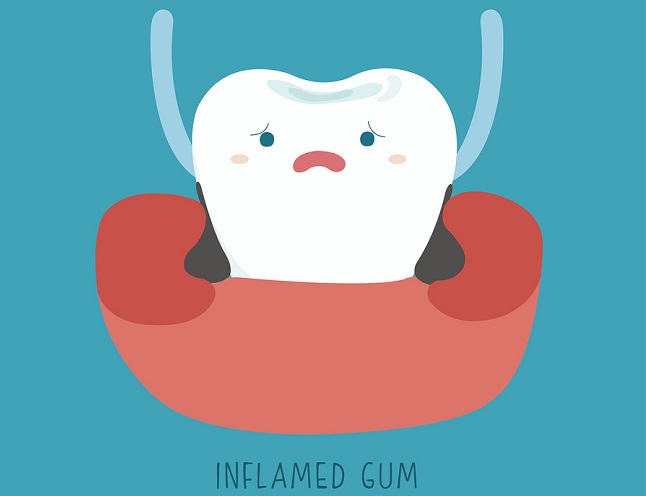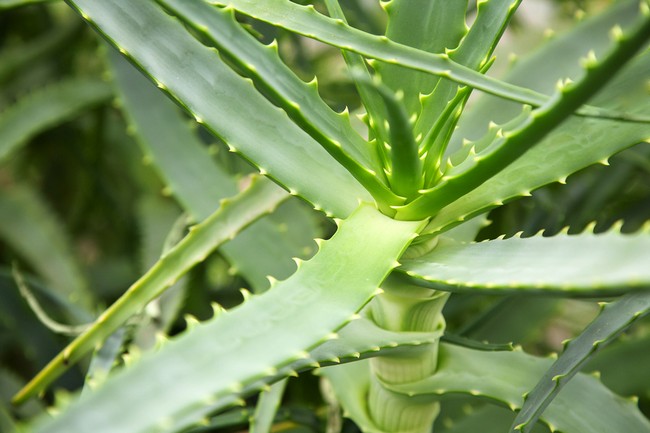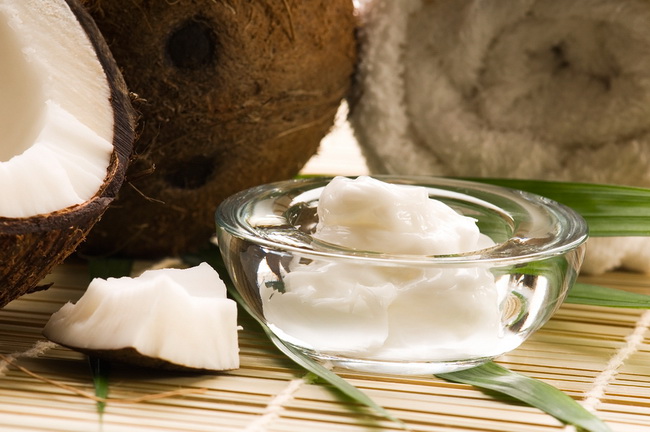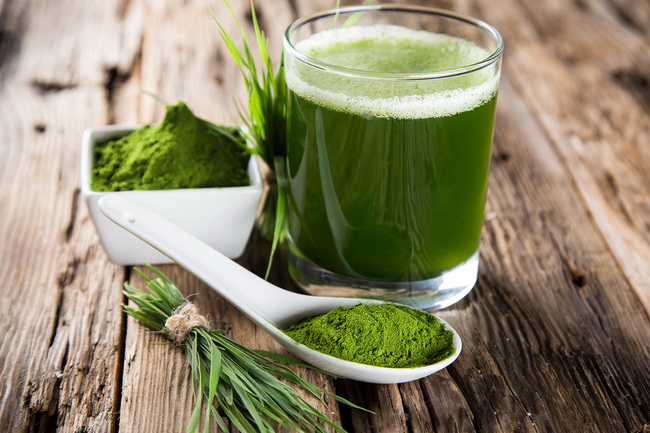- Make It Yourself Lavender Heart-Shaped Bath Bombs!
- 20 Things You Never Knew About “Down There”
- 12 Best Foods For Those Suffering From Arthritis Pain
- 12 Personal Hygiene Mistakes Almost Everyone Makes (Mom Never Told You About #4!)
- 15 Medicinal Plants And Herbs From The Cherokee People
- 12 Mind-Blowing Benefits Of Drinking Coconut Water During Pregnancy
- 12 Outstanding Winter Foods That Won’t Fatten You Up Like A Christmas Turkey
15 Mind Blowing Ways to Treat Gum Infection Naturally (#7 is Wild)

Photo credit: bigstock.com
If you don’t have gingivitis, meaning inflammation of the gums, then you probably know someone who does. This problem is almost epidemic, as it’s been estimated that about 95 percent of the population suffers from, or will suffer from periodontal disease to some degree in their lifetime. This infection is caused by the bacteria that lives inside the mouth, which become attached to the teeth, turn into plaque, become hard over time and later develops into tartar.
Common symptoms of gingivitis is characterized by a swelling and redness of the gums, bleeding when you brush your teeth, pain or tenderness at the gum line, bad breath, a persistent bad taste in the mouth, and the formation of pus between the teeth and gums.
Prolonged inflammation can lead to gingivitis, which can lead to tooth loss. Recent studies have also found that this inflammation of the gums, if left untreated, can increase the risk of heart attacks, stroke, diabetes, atherosclerosis, cancer, and even premature death.
In order to prevent gingivitis or to treat it after it has begun, the bacteria that causes the inflammation must be removed. To do this, diligently begin an oral hygiene program and apply some of the following methods to reverse the progression of this disease.
Keep reading and find out the best ways you can fight gingivitis naturally and regain a healthy, happy smile.
1. Turmeric
Since turmeric is the ultimate anti-inflammatory, it only makes sense that this ancient spice can help to heal your gums. Mix together 1 teaspoon of turmeric powder, 1 teaspoon of alum powder, 1 teaspoon of neem powder and 1 teaspoon of salt. Put this mixture in a small glass container with tight fitting lid. Three times each day, put a bit of this powder on your fingertips and rub it all over your teeth and gums for a minute or two, then rinse with plain water.
2. Simple Saline
This is easy and very inexpensive. Dissolve one teaspoon of salt in about a half a cup of warm water. Mix well and rinse with this solution for about 1 minute. Do this every time, right after you brush, especially before you go to bed.
3. Lemon and Salt
In a small bowl, mix ½ a teaspoon of salt and the juice of 1 organic lemon. Apply this paste to your teeth and gums and allow it to sit there for about 2 minutes. Rinse well with clear water afterwards. Do this only once per day.
Continue to Page 2

Photo credit: bigstock.com
4. Aloe Vera
This succulent has many healing compounds. You have probably used some before on minor kitchen burns or in lotions or even as a gel for your skin. Aloe vera can work wonders on your gums the same way it does on the skin. If you have an aloe vera plant, you can take off a leaf and squeeze out the gel. If you don’t have a plant, you can buy pure aloe vera gel at almost any health food store. (Read the label to be sure it is 100 percent pure aloe vera gel!) Take a small amount of the gel and put it on your fingertip, then rub it along the gums and the gum line. Allow it to sit for 5 minutes, then rinse it off.
5. Tea Bags
After you enjoy your tea, don’t throw away the teabag! Save them to help reverse and prevent gingivitis. This method works especially well with green tea bags. Once the bag is cool, simply place it on the infected area, or place several of them on your gums, and allow the tannins in tea to do their job and kill bacteria. After 5 or 6 minutes, take out the tea bag. Now you can throw it out! Read more about useful ways to recycle and reuse those old tea bags.
6. Sage
This wonderful spice has so many health benefits and is an excellent choice for killing the bacteria that treats gingivitis. You can use fresh or dried sage leaves. Add two or three leaves to one cup of boiling water and allow them to steep for 10 minutes. Strain, and allow this mixture to cool. Rinse with this “tea” for about 1 minute, three or four times each da. If you have a badly infected area, you can rub an organic sage leaf directly on the area.
Continue to Page 3

Photo credit: bigstock
7. Coconut Oil
You probably already use coconut oil in your cooking, and maybe you use it on your skin and hair, but did you know that this oil has super antibacterial and antimicrobial compounds that make it the perfect ingredient for oil pulling, brushing your teeth, and the reversal of gingivitis? It’s as easy as rubbing some virgin coconut oil on your gums three times a day and before you go to bed at night. For killing germs and improving your oral hygiene, virgin coconut oil cannot be beat!
8. Raw Organic Honey
What a sweet way to deal with gingivitis! Honey has anti-inflammatory and antibacterial compounds which can help to fight gum disease. Put some raw, organic honey on your fingertips and rub in on the infected areas.
9. Ginger/Chamomile/Cinnamon Tea
Chamomile helps to soothe inflammation and ginger is a well-known anti-inflammatory. Cinnamon has powerful antibacterial compounds which have been shown to treat infections. You can make a super strong tea using one teabag each of chamomile, cinnamon, and ginger. When the tea cools, use this mixture to rinse your mouth for one minute, two or three times each day.
Continue to Page 4

Photo credit: bigstock.com
10. Coenzyme Q10
This supplement has a powerful antioxidant effect and increases the amount of oxygen to the gums. This can help to both prevent and reverse gingivitis.
11. Plain Yogurt
The Journal of Periodontology published a report that stated that the probiotics in plain, unsweetened yogurt as being able to reverse gingivitis. So feel free to enjoy some plain, unsweetened yogurt and allow it to melt over your teeth and gums. You might even want to rub a bit of that yogurt directly on severely inflamed or problem areas.
SEE ALSO: Heal Your Gum Disease in a Matter of Weeks
12. Apple Cider Vinegar and Baking Soda
Don’t use undiluted apple cider vinegar, as this can erode the enamel of your teeth. Instead, use this powerful anti-inflammatory and antibacterial liquid as a rinse. Brush your teeth with some baking soda, then use a mixture of 1 part water and 1 part apple cider vinegar to rinse your teeth afterwards.
Continue to Page 5

Photo credit: bigstock.com
13. Lemon Juice and Strawberries
This is another tasty way to remove tartar and kill bacteria. Put 3 or 4 organic strawberries and 1 tablespoon of organic lemon juice in your blender or food processor. Blend lightly, then, using your fingertips, gently rub this mixture across your gums, right on the gum line. Leave this on for about one minute, then rinse very well with plain water.
14. Chlorella
These blue – green algae can help to heal and treat gingivitis from the inside out by improving the body’s immune system and encouraging the body to naturally repair its own tissue. Take this supplement as directed. Read more about chlorella benefits.
15. Echinacea
This ancient flowering herb has been used for ages to improve the immune system as well as reduce inflammation. You can add about 1.5 teaspoons of an Echinacea extract to a glass of warm water and use it as a mouthwash. Use this disease fighting rinse three or four times each day for best results.
Extra Tips:
- Don’t speed brush. Brush your teeth for 2 minutes every time you brush
- Always use a tongue cleaner at least once each day
- Drink plenty of water to remove food and bacteria from your mouth
- Floss at least once each day
- Eat plenty of fruits and vegetables
- Don’t smoke. If you do smoke, stop
- Cut out in-between meal snacks
- Stop eating sugary treats and sugar filled beverages
If your gingivitis symptoms do not appear to change or if they appear to worsen, see your dentist as soon as possible.
References:


































Joseph Dormer
Jun 2, 2017 at 5:53 am
You read all these websites on how wonderful aloe vera is and you can’t get hold of any that you can be sure is decent stuff. I just want a pure gel as obtained straight from the plant or, if it has been processed, a guarantee that it has not been processed in such a way as to compromise its effectiveness, as many processing techniques destroy or at least greatly reduce effectiveness – obviously I want that, otherwise there’s no point in using it. The problem is they don’t put the information you need in the product description or on the label – either that or the information given is ambiguous or deceptive. Actually I’m not particularly keen on gels mixed with a load of chemical additives either. I don’t see why it should be so difficult to get pure gel, just gel that has not been messed with or chemically adulterated but there you are. I spent all last evening searching online before finally having to admit defeat. I even thought of trying to grow my own but the climate isn’t suitable here in the UK.